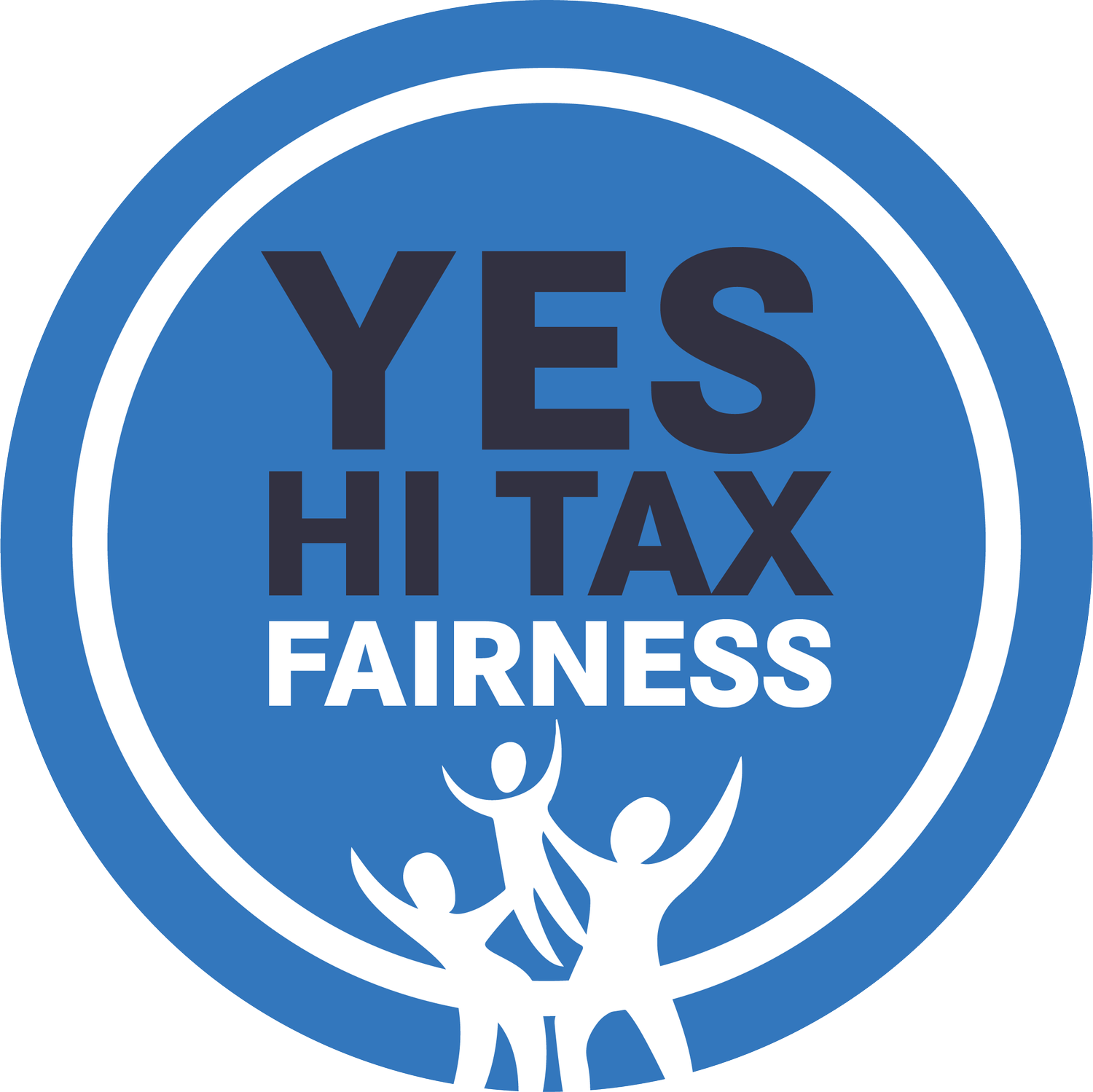Estate Tax Reform
Wealthy estates are built on public resources—when these inheritances are passed down, Hawaiʻi deserves a fair return.
Since the beginning of the COVID-19 pandemic, we’ve seen an increase in the number of individuals and families living in poverty in Hawaiʻi, according to recent research from the Center for Budget Policy and Priorities. The poverty rate for individuals grew from 9.3% to 11.2%, while the number of children living in poverty in Hawaiʻi increased by 3,800.
At the same time, the Congressional Budget Office projects that the income of the richest 1 percent in the nation has continued to accelerate through 2021, bringing its cumulative growth in wealth from 1979–2021 to 281 percent.
And a loophole in Hawaiʻi’s estate tax law currently gives a complete tax exemption to most property owners from the continent if their property is part of an estate, which is one of the core reasons the super rich park their money in real estate here in Hawaiʻi, which drives up the cost of housing for locals.
The wealthy few can afford to pay a lot more.
The federal Tax Cuts and Jobs Act (2017) gave a tremendous tax break to the very richest among us, shielding $11 million for singles (and $22 million for couples) of property transferred from the deceased to their heirs from taxation.
Among the states that have estate taxes, Hawaiʻi has the fourth-highest exemption amount. Here, a person can inherit up to $5.49 million without owing any state estate tax ($11 million for couples).
In 2019, the Center for Budget and Policy Priorities found that, as of that year, there were only 30 estates in Hawaiʻi that qualified for taxation.
As recently as 2001, however, the exemption amount was only $675,000, or less than one-eighth of the exempted amount today.
The estate tax is estimated to generate anywhere from $250–$300 million currently for the state to invest in schools, hospitals, infrastructure and affordable housing.
If Hawaiʻi's estate tax exemption were dropped to between $1 million and $3.5 million, the state could generate between $6.6–$18.3 million in additional revenue per year.
Hawaiʻi’s estate tax loophole encourages the rich to invest their money in Hawaiʻi’s real estate market, making housing more expensive for locals.
As of now, Hawaiʻi’s estate tax law loophole means that, if the state or country in which a wealthy heir lives exempts property owned by nonresidents from its estate tax, then the State of Hawai'i does the same. This is a central reason for the flood of investment money entering the real estate market from wealthy nonresidents, which drives up housing costs for residents.
By shackling Hawaiʻi to the inheritance laws of other jurisdictions, the loophole causes our state to lose out on a significant amount of potential revenue.
We should stop giving wealthy nonresidents a tax break when they use Hawaiʻi real estate to build their estates.
Taxing capital gains like regular income would generate a lot of revenue, paid for by those at the top.
Long-term capital gains constitute 11.5 percent of total taxable income in the state, or nearly $4.3 billion in 2019.
If Hawaiʻi were to tax capital gains at the same rates as regular income, as most states do, Hawaiʻi would bring in about $180 million in new revenue per year, according to DOTAX, and 97 percent of it would be paid by the top 5 percent of earners in Hawaiʻi, or those making at least $261,000 a year.
Meanwhile the vast majority of taxpayers—those in the bottom 80 percent—would pay nothing at all.
Figure 3. Closing the capital gains loophole means only Hawaiʻi’s wealthiest earners would pay more.
Source: Analysis conducted by the Institute for Taxation and Economic Policy in January of 2022.
Closing the capital gains tax loophole is a win for racial justice.
While Native Hawaiians and Pacific Islanders represent 24 percent of the tax units in Hawaiʻi, they receive only 17 percent of the capital gains tax breaks.
Figure 4. The capital gains loophole reinforces racial inequities resulting from an ongoing legacy of colonialism that disproportionately disadvantages Native Hawaiians and Pacific Islanders in Hawaiʻi.
Source: Analysis conducted by the Institute for Taxation and Economic Policy in January of 2022.
Higher capital gains tax rates have no impact on business investment levels.
According to Warren Buffett, famed billionaire founder of Berkshire Hathaway, “I have worked with investors for 60 years and I have yet to see anyone—not even when capital gains rates were 39.9 percent in 1976-77—shy away from a sensible investment because of the tax rate on the potential gain.”
Looking at the federal capital gains tax rates and real business investment over time, there is no relationship between taxing capital gains and investment levels.
In fact, the Penn Wharton Budget Model finds that raising the federal capital gains tax rate would actually increase long-term economic growth.
Figure 5. There is no relationship between taxing capital gains and investment. Real investment has continued to grow uninterrupted regardless of the top capital gains rate.
Source: Washington State Budget & Policy Center





